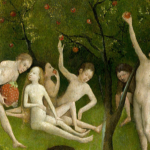13. Landesweiter Tag der Genderforschung in Sachsen-Anhalt (Web)
Zeit: 14.11.2024
Ort: Magdeburg
In unserer Gegenwart spielen Körperdiskurse und der Körper selbst eine immense Rolle. Körper begegnen uns täglich in ihren Facetten von Gestaltbarkeit, Verfügbarkeit, Normierung, als zugerichtete, präsentierte oder stigmatisierte Körper und werden so zum Seismographen für gesellschaftlich akzeptierte oder abgelehnte Praktiken. Auch wissenschaftlich ist der Körper in den vergangenen Jahrzehnten in den Fokus des Interesses gelangt (somatic turn oder body turn), wobei auch Gender- und Diversitätsdimensionen zunehmend in den Blick geraten und im Kontext intersektionaler Zugänge gedacht und verhandelt werden. Die engen Verflechtungen und Interdependenzen zwischen Körper, Geschlecht und Gender kann man auch daran ablesen, dass gesellschaftspolitische Debatten um Feminismus, Gleichstellung und Diversität ganz essenziell von der Ebene des Körperlichen bestimmt werden.
Der 13. Landesweite Tag in Sachsen-Anhalt verortet sich daher an der Schnittstelle von Körperdiskursen und Genderforschung, indem er die komplexen Zusammenhänge zwischen Körper, Geschlecht und Gender interdisziplinär aufgreift, aktuelle Forschungen präsentiert und Akteur:innen vernetzt. Es wird spannende Vorträge und Posterpräsentationen geben, die ein breites Themenspektrum abdecken von Geschlechterkonflikten als Körperkonflikte über queersensible Geburtshilfe, Aspekte von Menstruationsgesundheit und -aktivismus bis hin zur Problematik der (De)-Thematisierung von Körperlichkeit des weiblichen homo academicus im männlich geprägten Ort „Hochschule“. Im Rahmen der Tagung zudem wird der Förderpreis für Abschluss- und Qualifikationsarbeiten mit Genderschwerpunkt verliehen, den das Ministerium für Arbeit, Soziales, Gesundheit und Gleichstellung des Landes Sachsen-Anhalt und die Koordinierungsstelle Genderforschung & Chancengleichheit Sachsen-Anhalt gemeinsam vergeben.
Programm
10.00 Uhr Begrüßung, Einleitung & Grußworte: Ute Seeland, Otto-von-Guericke-Univ. Magdeburg
10.30 Uhr Verleihung des Förderpreises für Abschluss- und Qualifikationsarbeiten: Petra Grimm-Benne / Ministerin für Arbeit, Soziales, Gesundheit und Gleichstellung des Landes Sachsen-Anhalt | Vorstellung der Preisträger:innen
11.45 Uhr Geschlechterkonflikte als Körperkonflikte: Sarah Sandelbaum, Goethe-Univ. Frankfurt Continue reading

 Büro für Gleichstellung und Familie, Otto-von-Guericke-Univ. Magdeburg, Mareike Fingerhut-Säck und Bettina Hitzer
Büro für Gleichstellung und Familie, Otto-von-Guericke-Univ. Magdeburg, Mareike Fingerhut-Säck und Bettina Hitzer  The „Hidden lives: domestic servants in the European country house, c.1700-1850“-Network
The „Hidden lives: domestic servants in the European country house, c.1700-1850“-Network  Institut für soziale Bewegungen, Bochum; Institut für Zeitgeschichte, München -Berlin; Leibniz-Zentrum für Zeithistorische Forschung, Potsdam
Institut für soziale Bewegungen, Bochum; Institut für Zeitgeschichte, München -Berlin; Leibniz-Zentrum für Zeithistorische Forschung, Potsdam Arbeitskreis für interdisziplinäre Männer- und Geschlechterforschung AIM GENDER
Arbeitskreis für interdisziplinäre Männer- und Geschlechterforschung AIM GENDER